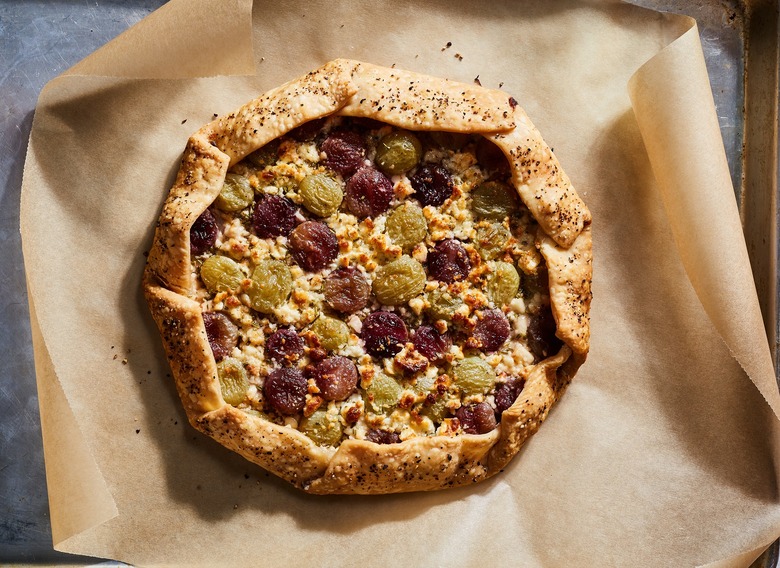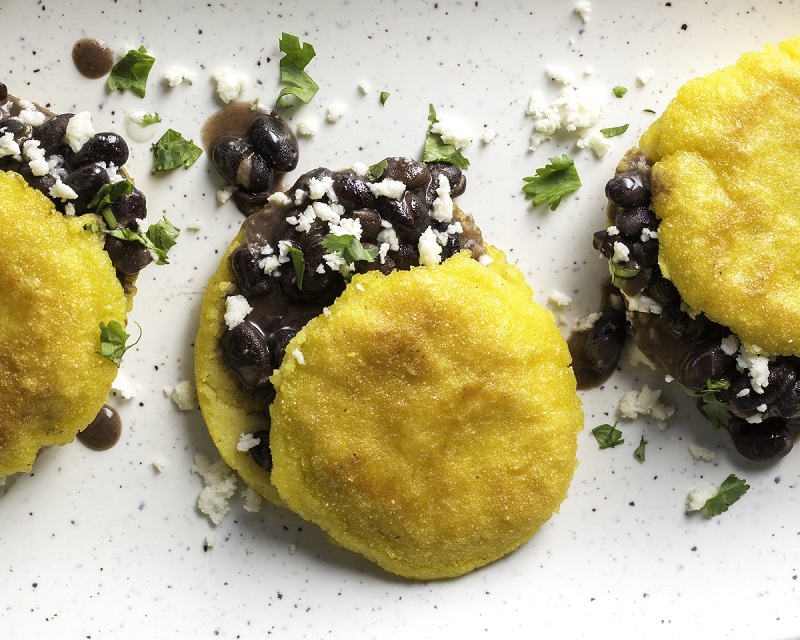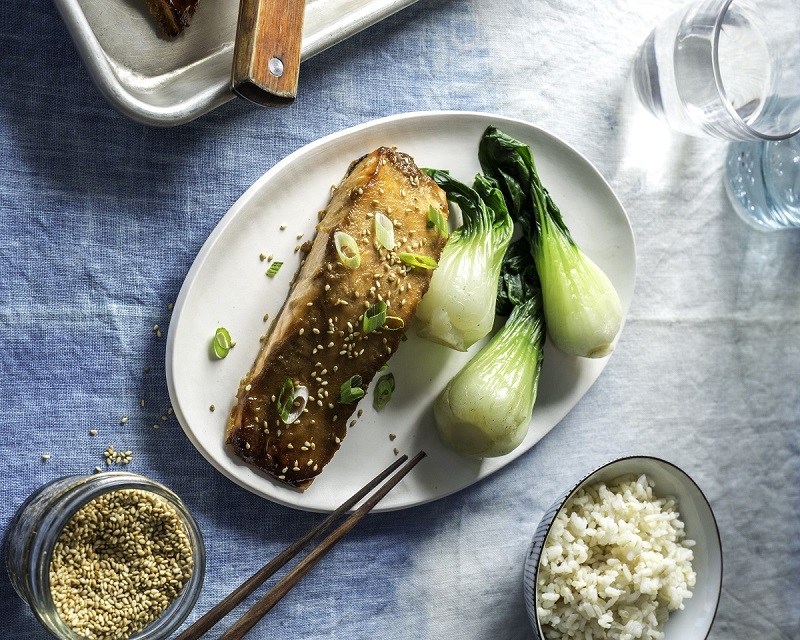These Healthy Recipes And Tips From A Doctor Will Make Nutritious Eating A Cinch
We may receive a commission on purchases made from links.
It seems like every day there's a new health fad, wellness app or fitness program to be in the know about. Being mindful about your health is important, but it's not always easy to cut through the noise and find what works for you. Read on or jump to recipes.
Ingredient Spotlight: Tempeh (and 7 Tempeh Recipes)
In a society that closely links weight and health, it might seem natural to follow health tips that suggest restrictive eating techniques and promote diet culture. But for doctor, chef and cookbook author Linda Shiue, weight does not tell the full story.
"The conversation should really focus on what we are eating," she says. "There's also the source of our food. If you eat meat or fish, how was it raised? Is your produce organic? Are your grains whole? How much added sugar are you consuming? All of these answers have more relevance to someone's health than how much they weigh."
Shiue, author of the new cookbook "Spicebox Kitchen: Eat Well and Be Healthy With Globally Inspired, Vegetable-Forward Recipes," is a medical doctor and trained chef. She worked for a decade as a primary care physician and felt frustrated that a lot of her patients were struggling with their cholesterol, blood sugar and blood pressure.
Everything changed when she attended a medical conference about how nutritional science could be potentially beneficial to her patients. In her book, Shiue writes that this was her "light bulb moment." After the conference she began hosting cooking classes and suggesting diet modifications to her patients. She eventually went to culinary school.
Shiue's cookbook features recipes that also include a brief explainer of the ingredients and their health benefits. Furikake, for example, is a Japanese rice seasoning that contains iodine, a mineral needed for proper thyroid function, while sorrel is a leafy plant that has an abundance of antioxidants that can potentially protect your cells against cancer or heart disease.
Her book challenges a common misconception about healthy eating: "that Western medicine and 'wellness' have a monopoly on healthy food — it's all kale and quinoa — and we forget about traditions and knowledge from other cultures."
"Spicebox Kitchen" breaks down that knowledge barrier by including recipes inspired by California (her current home), Asia (inspired by her Taiwanese heritage and personal travels), Mediterranean/Middle East (a region of personal interest to her), and Trinidad (where her husband is from) — all of which have histories of spice-filled, nutritious cooking.
Her globally-inspired recipes emphasize that food is about "celebration and community," not restriction — which studies show tend to backfire. Instead of limiting yourself, or falling into the misconception that eating healthy needs to be all or nothing, Shiue spends the entire first half of her book providing helpful advice for how to construct and maintain health-focused eating habits.
"I think that we need to turn those misconceptions on their heads," Shiue says. "I especially want people to know the food that is good for you can and should taste great."
But changing your eating habits isn't easy. Shiue explains that figuring out why you want to make a change is key.
"It has to be personal and something very genuine," she says. Having a family history of early heart disease or feeling low energy and achy are two examples Shiue lists as personal reasons for why people might want to be more health conscious.
But changing your eating habits isn't easy. "I am a big believer in incremental change, small improvements that build upon each other until you reach your goal," she explains.
That same slow and steady strategy also applies to people who are trying to eat a more plant-based diet, which Shiue promotes in her veggie-forward book. She explains that trying to eat meat-free a few times or even once a week is a great place to start. But for people who are against the transition entirely, Shiue challenges you to ask yourself "why?"
"Is it because they 'don't like vegetables?' That's why I wrote this book," she says. "Is there a financial reason? I recommend thinking about inexpensive but very nutritious frozen vegetables, or perhaps seeking out produce at food pantries."
But even if you've found your "why" you might still be struggling with the "how." Luckily, Shiue is here to help. She argues that keeping a well-stocked pantry — with a variety of vibrant spices, whole grains, canned or dried beans, ethically sourced canned fish, pasta and canned tomatoes — will help equip anyone to whip up healthy meals any day of the week.
To get a feel for Shiue's approach, here are a few recipes from "Spicebox Kitchen" that put some of her favorite staples to use.
Arepas are like corn pockets, similar to pita, that can be used in a variety of ways. The food originated in South America and is a beloved snack in Venezuela and Colombia. Here, it's stuffed with black beans, onion and queso fresco, making it a perfect vegetarian starter dish.
For the Arepas "El Diablo" recipe, click here.
Rustic Grape, Feta and Caramelized Onion Galette
Believe it or not grapes can be used in dishes with savory ingredients as well as sweet. This grape, feta and caramelized onion galette is proof of that. Roasting the grapes gives the fruit a smooth, warm flavor. Shiue recommends serving it with a salad or cutting it into slices for an appetizer.
For the Rustic Grape, Feta and Caramelized Onion Galette, click here.
Miso-Glazed Salmon
For a pescatarian meal, this miso-glazed salmon is a delicious option to try from Shiue's cookbook. If you have leftovers of the sauce, store them in the refrigerator and add to other ingredients like tofu, eggplant and carrots. It'll also make a great addition to some of our best plant-based recipes for vegetarians, vegans and carnivores alike.



